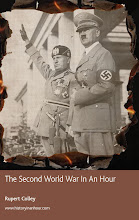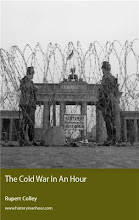 A wonderful country Poland. Only a couple hours from London by plane. But it wasn't always the case.
A wonderful country Poland. Only a couple hours from London by plane. But it wasn't always the case.When I was a sixth former in England during the early eighties and the era of the Cold War, Poland might as well have been on the other side of the world for all we knew about it. Apart from the occasional England v Poland football match, Poland could have been North Korea.
In September 1980, the workers formed Solidarity - the first trade union, of sorts, within the Eastern Bloc. When Lech Walesa, Solidarity's leader, signed the charter, he did so with a large pen bearing the image of Pope John Paul II, the Polish pope, and such a figure of inspiration for the Poles living under communism. But at the time my friends and I were more interested that The Police had got to number one ('Don't Stand So Close To Me').
I visited Gdansk, home of Solidarity, in 2005 and my souvenir mug is a treasured possession.
But 28 years ago today, 13 December 1981, the Polish government, fearful of Solidarity's increasing influence, clamped down on its people, proclaimed martial law, imposed curfews and sent in the tanks. Solidarity was banned, its leaders, including Lech Walesa, arrested. When they came for him, Walesa said: "This is the moment of your defeat. These are the last nails in the coffin of communism."
I remember watching on TV at home: the tanks on the street, the scattering crowds, the frightened faces. Although 17, I could not understand what it all meant. My mother tried to explain, tried to tell me about "freedom" - this thing that I had and had no idea I had it.
I know now but I still don't really appreciate it. No one can unless they've experienced the opposite. It's similar to trying to explain the full meaning of hunger. We know we're lucky; we just can't fathom how lucky.
Rupert Colley
Read about the Cold War in just one hour at historyinanhour.com






No comments:
Post a Comment